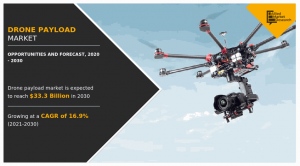Laura Wallace, a geodetic scientist told Science Magazine that the new technology was “going to make a huge difference,” after the NSF purchased three drones from Chadwell’s team for $5.5 million to survey 16 different seafloor sites.
The NSF is hoping to use this technology to learn more about a potential earthquake in the Cascadia subduction zone, which is located just off the Pacific Northwest. Previous reports indicate that a sizable earthquake could be the result of the zone rupturing.
With the new drone technology, the NSF is hoping to be able to pull in more information about earthquake threats deep in the ocean. Hopefully, the NSF will continue to fund research from groups like Chadwell’s so that it can uncover more information on any potential threats.
Andrew Smith is a freelance contributor with IGN. Follow him on Twitter @_andrewtsmith.
 Unmanned Aerial Vehicle The latest drone news
Unmanned Aerial Vehicle The latest drone news



